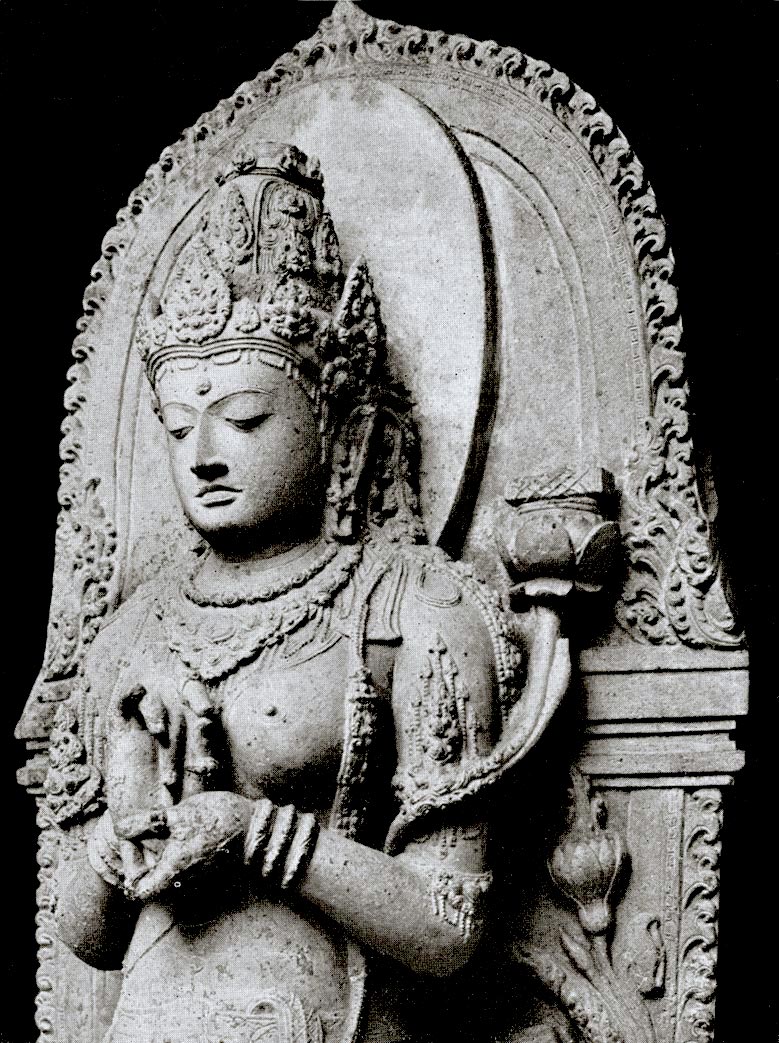Though they have no objective reality, gender constructs affect our place in society. They influence how much pay we receive for the jobs we do and the roles we play at home in the family. They affect which aspects of our personality we feel comfortable expressing and which we do not.They determine the clothes we wear, and they can impact our relationship to our own body ... This holds us back, limiting men and women to socially constructed boxes and causing a great deal of suffering for everyone."
-the 17th Karmapa, Orgen Trinley Dorje
Today, March 8, is International Women's Day. While gender is -- on an ultimate level -- a projection, a construct, on a relative, or everyday, level, it matters. As the Karmapa says, it affects pay, appearance, how we're seen, how we're comfortable presenting ourselves.
For women, that's often meant not being seen, being comfortable with invisibility. But that diminishes everyone, not just women.
In Tibetan Buddhism, both the masculine and feminine qualities must be present -- and integrated -- for enlightenment to take place. Denying or hiding the feminine throws things out of balance. Bringing the feminine forward, then, is a step toward achieving balance, or equanimity.
In 2010 the Soto Zen Buddhist Association approved a document honoring women ancestors in the Zen tradition, the Zen Women Ancestors Document. Grace Shireson says that recognizing women ancestors "is a solid step toward bringing Buddhism more fully into the reality of Western life."
Because the historical women did not receive the same support as male practitioners, they were less
likely to become monastics, Shireson writes. Women survived by banding together, offering support to their communities, not by withdrawing to remote locations and extoling the virtue of transcending worldy attachment.
The Zen document begins with Prajnaparamita -- the ground of being or womb of totality -- and moves through a list of dozens of names of women Zen practitioners. Without knowing the stories, the names may not mean much.
"Women expressed their humanness and longing to actualize their vows amid daily life -- even as they lived with worldly attachments... Women's Zen teaching laments the loss of loved one and extols the beauty of life. No matter how deep their practice, their human heart is exposed."
But the practice is available to us all. Every one of us had women ancestors. They may not show up in the formal lineage chants that Buddhists speak, but we could not be here without them.
I've been thinking about personal lineage lately as I've witnessed a friend reflect on his father's death and my teacher share about her mother's passing. I see that lineage is not just the line of practitioners that connects us to the ground of being; it's also the people whose DNA is in our bones, whose views were our views.
-- Think of a woman in your life -- a mother, aunt, teacher, mentor -- who helped you on your path in some concrete way. Consider what they've done for you and feel the preciousness of that auspicious connection.
-- Then think of someone you don't know in real life but who has inspired you through her example: An author, teacher, someone you saw on a video or heard speak or follow on Facebook or Twitter for daily doses of wisdom. Consider how this person has enriched your life.
-- And finally, consider the sacred feminine, the accepting, non-judgmental space of emptiness, and contemplate how you experience this. Maybe you carry Tara or Mother Mary or Sophia in your heart; maybe you're drawn to the moon. In the vajrayana, the feminine represents wisdom, space. (The masculine represents action.)
Recognize that, honor that. Sit in the presence of your personal women's lineage, and integrate it into your being.
Recognize that, honor that, and integrate it into your being.
We cannot become a buddha unless both the qualities that are labeled 'feminine' and those qualities that are labeled 'masculine' are present and integrated within us. ... It is beneficial and important for us to have all these qualities, regardless of the gender they are associated with.
-- the 17th Karmapa


No comments:
Post a Comment